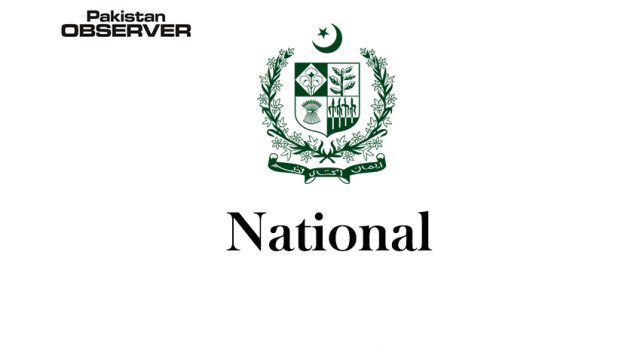Aneesa Abbasi
WITH the era of nuclear proliferation, nuclear security and nuclear safety have become of utmost significance, especially in conflict-ridden states or regions.
South Asia falls under the mentioned category which hosts two rival states I.e. Pakistan and India and Afghanistan as the fragile state, those major concern always lied in security.
States competed for nuclear weapons while making the intentions assure that these weapons do not plunge into suspected hands.
But the recent incident of illegal possession of uranium by unauthorized persons in India provoked high-security concern in South Asia.
India, which always called itself a responsible nuclear state lost its credibility with the several incidents of nuclear smuggling.
In the recent incident, seven suspects were arrested with 6.5kg of uranium which were searching for the customer at 5 million INR.
The accused were arrested under the IPC section 414 for the assistance of stolen property, 120B for criminal conspiracy and 34 for common intention under various sections of the “Atomic Energy Act”.
In the last month, two persons were arrested with 15.4 pounds of natural uranium in the western Maharashtra state. In 2016, police seized 19.8 pounds of depleted uranium in the Thane area of Maharashtra.
Between 1995-1998, India parliamentary report published security-related incidents which include 147 mishaps in Indian atomic energy plants, out of which 28 were of acute nature and nine of these occurred in nuclear power installations.
Also previously, India reported 25 cases of uranium theft and nine computers were stolen from India’s Defence Research and Development Organization to IAEA. All these incidents pose a huge threat to the whole of the region.
Nourishing the black market can have serious consequences for the whole of the region, leading to the trade and movement of nuclear and radioactive material across borders.
Most importantly, the region which is considered as the pivot of terrorism and terrorist organizations need much comprehensive nuclear safety and security measures because such identities can break violence and pose a huge threat to global security.
These incidents raised concerns about the involvement of non-state actors, who always showed their interest to get their hands on weapons of mass destruction (WMDs) including nuclear and radiological weapons.
Also, the black market connects to international players through smuggling, buying, selling, and using these nuclear and radioactive materials.
As uranium is used in several areas, including nuclear explosives and medical techniques. 7kg of natural uranium contains about 0.049kg of U235, which is a bomb material.
Terrorism involving nuclear or radiological material remains the greatest threat to South Asia which includes the modalities such as nuclear or radiological theft or an attack on a nuclear facility.
To combat these threats, nuclear safety and security measures are necessary and applying them is the national responsibility of every state.
Nuclear Safety and security involves prevention, protection, detection, the response of unauthorized access, removal, sabotage, illegal transfer or other acts involving nuclear or radiological material that probably benefits malicious groups.
However, their implications vary, as nuclear safety relates to technical step while nuclear security requires both military and technical instruments and practices.
Under these incidents, India’s nuclear safety and security doesn’t seem effective and also shows the possibility of the Indian nuclear market which perhaps links to international players.
Indian nuclear energy production under the government is regulated by the Nuclear Power Cooperation of India (NPCIL).
Prominent international nuclear proliferation watchdogs voiced several conventions for nuclear safety and security, under which the member states are accountable.
ITDB was established in 1995, which help the states to combat illicit nuclear trafficking and strengthen nuclear security.
ITDB is also an important component of the information platform supporting the IAEA’s nuclear security plan 2018-2021.
IAEA provides safety services for the member states, these safety services include, engineering safety, operational safety, radiation, transport, waste safety and regulation matters, through which they assist the member states for their effectiveness.
The UN Security Council Resolution 1540 and the IAEA Convention on the physical protection of nuclear material (CPPNM) make it binding on states to ensure strong measures to prevent nuclear material from falling into wrong hands.
Therefore, India must report these incidents to the IAEA incident and tracking database mechanism for effective measures.
As these incidents can cause a potential threat to the whole of the region and rather than just opting for a national approach, a regional framework must to designed to combat the threat.
The already conflict-ridden states can further face the consequences of such incidents. The states which are not part of the non-proliferation treaty and always shown their interest in the arms race could lose their credibility with these kinds of incidents where states are unable to secure nuclear or radiological material and causing a major threat to international peace and security.
Moreover, these incidents will also show the credibility of the international community. Blatantly, the US has imposed several sanctions on Iran for conducting its nuclear programs and remained a major critique.
Now it’s time to observe that will the US take action against Indian mismanagement which is among their major ally and also an emerging economy.
The reliability of international conventions would only manifest through the effective implementation of these regulations in such circumstances.
As the incidents have become common in India, so there is an urge to take measures that undermines the threat of becoming intractable in the South Asian region.
These incidents can act as a beneficiary to non-state actors and the states within South Asia can be further driven to conflicts through manipulation.









